After giving birth to her daughter, Ellie, in July 2020, Elissa Kalver noticed she had unusual aches and pains. She visited her doctor and underwent blood tests, but her results looked normal. For months, doctors tried to understand what was going on but couldn’t find anything wrong. While she was getting dressed one day, her husband, Eric, “copped a feel," Kalver joked, and he felt a lump in her breast.
“(None of the pain) was near my breasts,” Kalver, 36, of Woodland Hills, California, told TODAY. “I was 34, so you don’t do mammograms or anything particular anyway.”
After Eric found the lump, she underwent an ultrasound, mammogram and biopsy. Doctors diagnosed her with HER2-positive metastatic breast cancer. HER2-positive breast cancer grows and spreads faster than HER2-negative breast cancer, and metastatic breast cancer means it's spread to another part of the body.
“We found out that it had also spread all throughout my liver. My liver was covered with cancer and my lower spine,” she said. “That’s when I found out it was stage 4.”
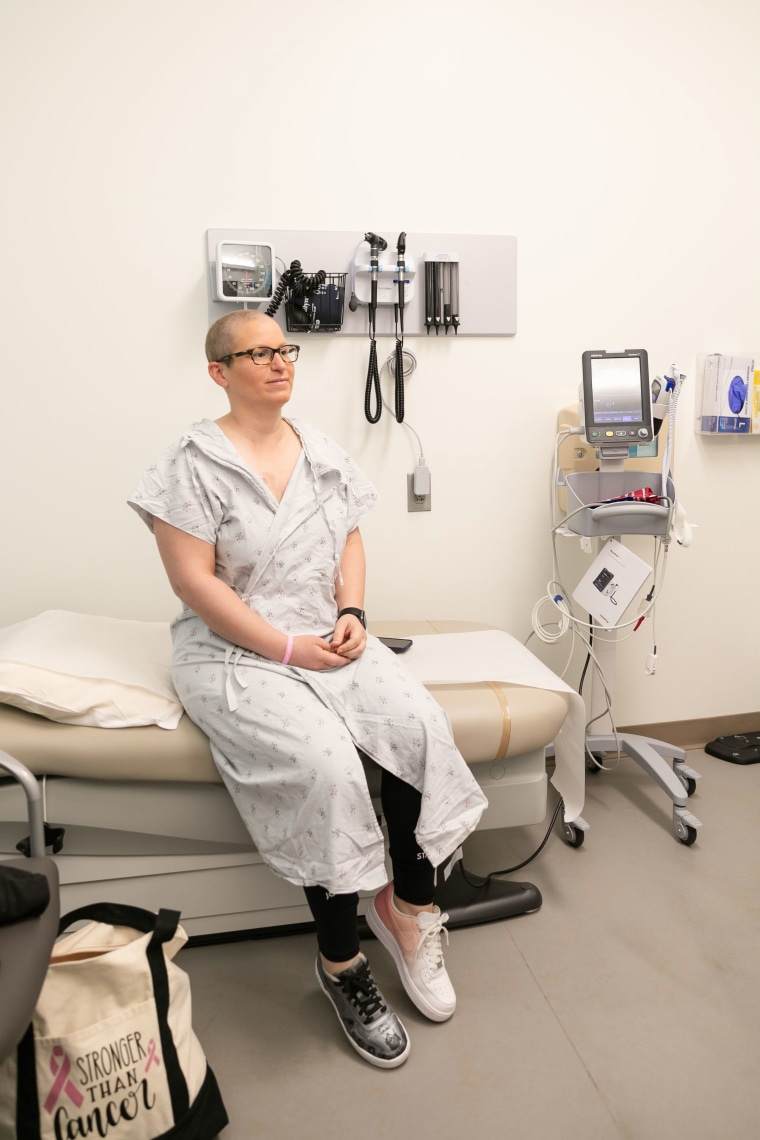
Numbness in her feet leads to no answers
After Ellie’s birth, Kalver felt more pain than usual but only became concerned when her feet went numb while playing tennis.
“It was weird,” she said. “I couldn’t keep shoes on for too long. It was like my feet felt like they were swelling up, and they would get tingly and numb.”
She visited her doctor, but her test results were normal. Then she visited a rheumatologist, who investigated whether she was experiencing an autoimmune disorder.
“I was going to everyone, my primary care doctor, my gynecologist, just to make sure everything was good with my body because I felt like something was off,” she said. “Again, everything came back fine.”
When her husband found the lump, Kalver first wondered if it was related to breastfeeding, such as a cyst or clogged milk duct. She hadn’t been breastfeeding for about 10 months at the time, so she reached out to her doctor.
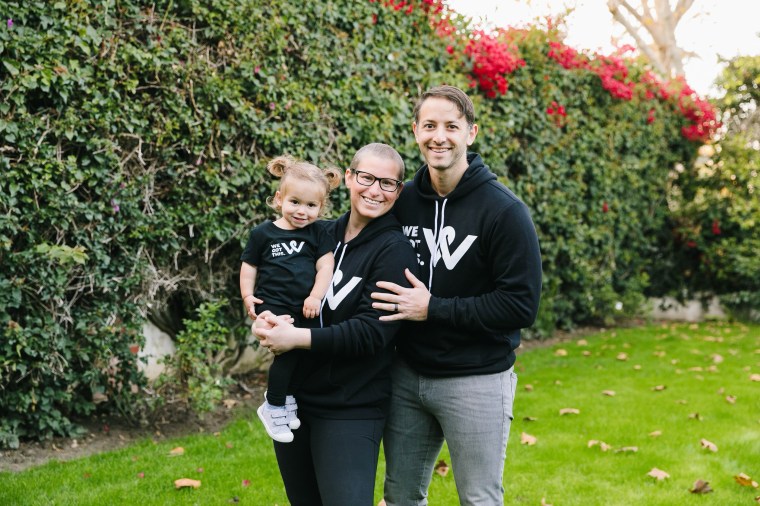
“I just messaged my doctor like, ‘Hey, I feel a lump in my breast and want to see if I could come back in for another breast exam,’” she said. “When they felt the lump in my breast, they also felt one in my armpit, which are my lymph nodes. From there, things moved faster.”
Her doctor had her get an ultrasound, mammogram and biopsy and she soon learned it was malignant. It wasn’t until she had a PET scan that doctors realized how widely the cancer had spread.
“We were in the doctor’s office, my husband and I, and she pulled up the scan. I’ve never seen one before, and it just lights up where there’s cancer, and you see it in the breast. You saw my armpit, and it was just complete lights in my liver,” Kalver said. "My initial thought was, ‘Well we’ll remove my breasts. Whatever we have to do, let’s do it.’ And that was when I found out that wasn’t a solution.”
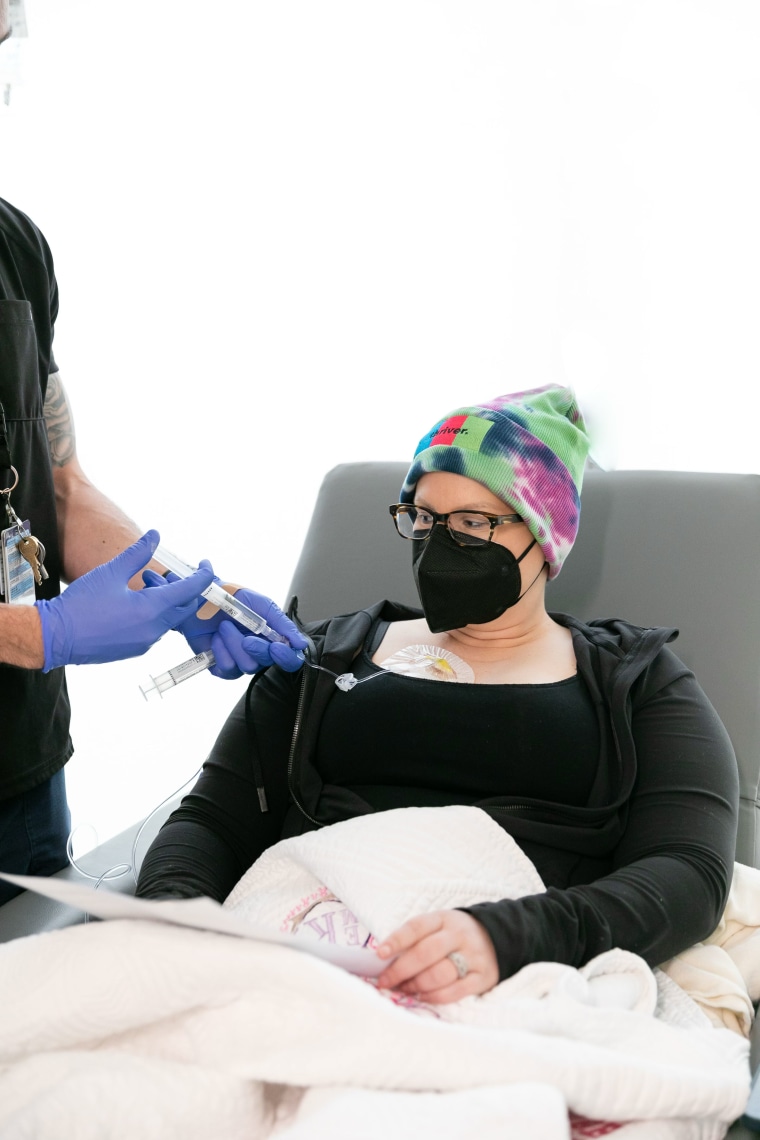
While surgery could remove the lump in her breast and lymph nodes, it would do little for her liver or spine.
“It was really shocking, but my mentality was like right into action,” she said. “What do we do? How do we tackle this?”
While Kalver felt ready to face chemotherapy and other treatments, Eric had a tough time with the diagnosis.
“It was just very shocking,” she said. "We all handle it so differently."
She started eight rounds of chemotherapy, which shrunk many of the tumors. And, she also started two antibody treatments that targeted the HER2 protein.
“Once we stopped chemo, I continued on these infusions every three weeks,” she said. “I have breast cancer friends who've been on that for 10 years, five years, really long periods of time and have very (few) symptoms. And unfortunately for me, they stopped working around four months, and that was when we saw there was a recurrence in my breast.”
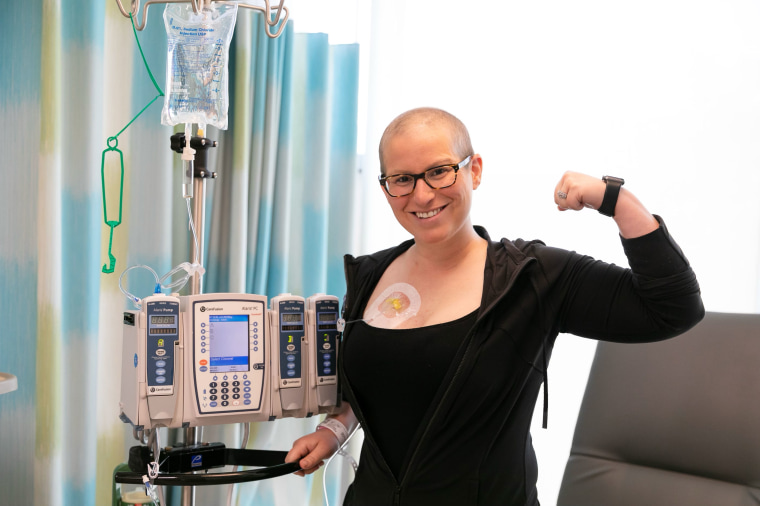
Kalver needed to start a new targeted chemotherapy that she’s on indefinitely and is also in a clinical trial for a new potential treatment. Around the same time, she developed headaches and her doctors sent her for an MRI of her brain.
“It turns out there’s a couple of tumors in my brain now,” she said.
Turning a bad diagnosis into a 'positive'
Kalver’s first round of chemotherapy made her feel very ill, which caused her to “feel down.”
“Rather than sulking, I decided that I had to do something and that’s when I created the idea for the nonprofit called We Got This,” she said. “Working on that has been a level of normalcy that I’ve been able to maintain and focus on all the positive pieces and silver linings in connection with other cancer patients.”
The organization is a marketplace and gift registry for cancer patients. So often people want to help their loved ones with cancer, but aren’t sure how to do so. This allows cancer patients the ability to request specific things that might make their experiences easier or more comfortable.
“I had so many people with such amazing intentions reaching out and seeing how they could help,” she said. “I really how no idea how they could help, especially at the beginning. I didn’t know what I needed or not. And it’s so different whether you’re going through chemo or surgery.”
The marketplace offers discounts on some products, and the registry will launch next year.
“It’s the things that make us comfortable during chemo,” she said.
For example, she develops cuticle infections because of treatment, so Bombas socks work best because there are no seams rubbing on her toes.
“That was an example of something so simple that made my life more comfortable,” Kalver said. “That’s the initial focus that we starting going off of, and then we’ll also have the option to register for services.”
For example, someone told her to have her eyebrows microbladed before chemotherapy so that when she lost her hair, she’d still have eyebrows.
“You can’t get any form of tattoo during chemotherapy because of the risk of infection,” she said. “These are the kinds of things you need to know the second you’re diagnosed, or you won’t have time to fit them in.”
Since starting the organization, people have reached out with suggestions or what they wished they knew when they were diagnosed.
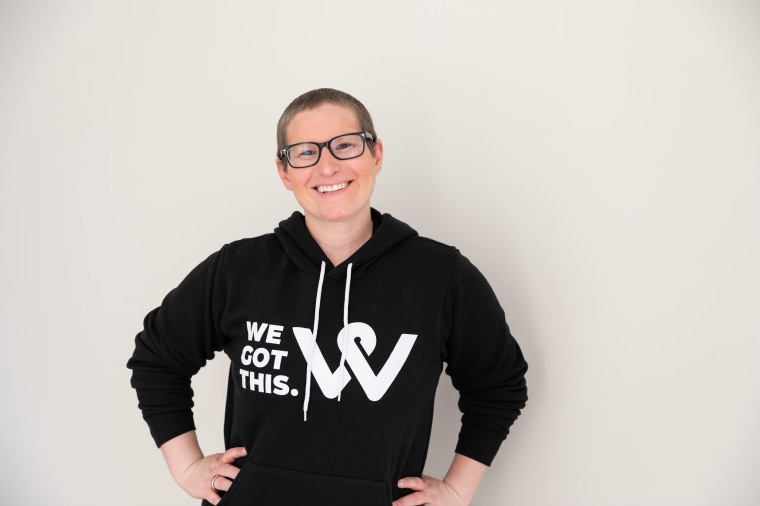
“Being able to give people the tools and the information for what they might need and what they might want adds a whole positive element to this experience,” she said. “I don’t necessarily believe everything happens for a reason because this is tough and I wish I didn’t have cancer. But if I’m going to have it, what’s come out of it is the most special thing I’ve ever done. It’s given me such purpose.”